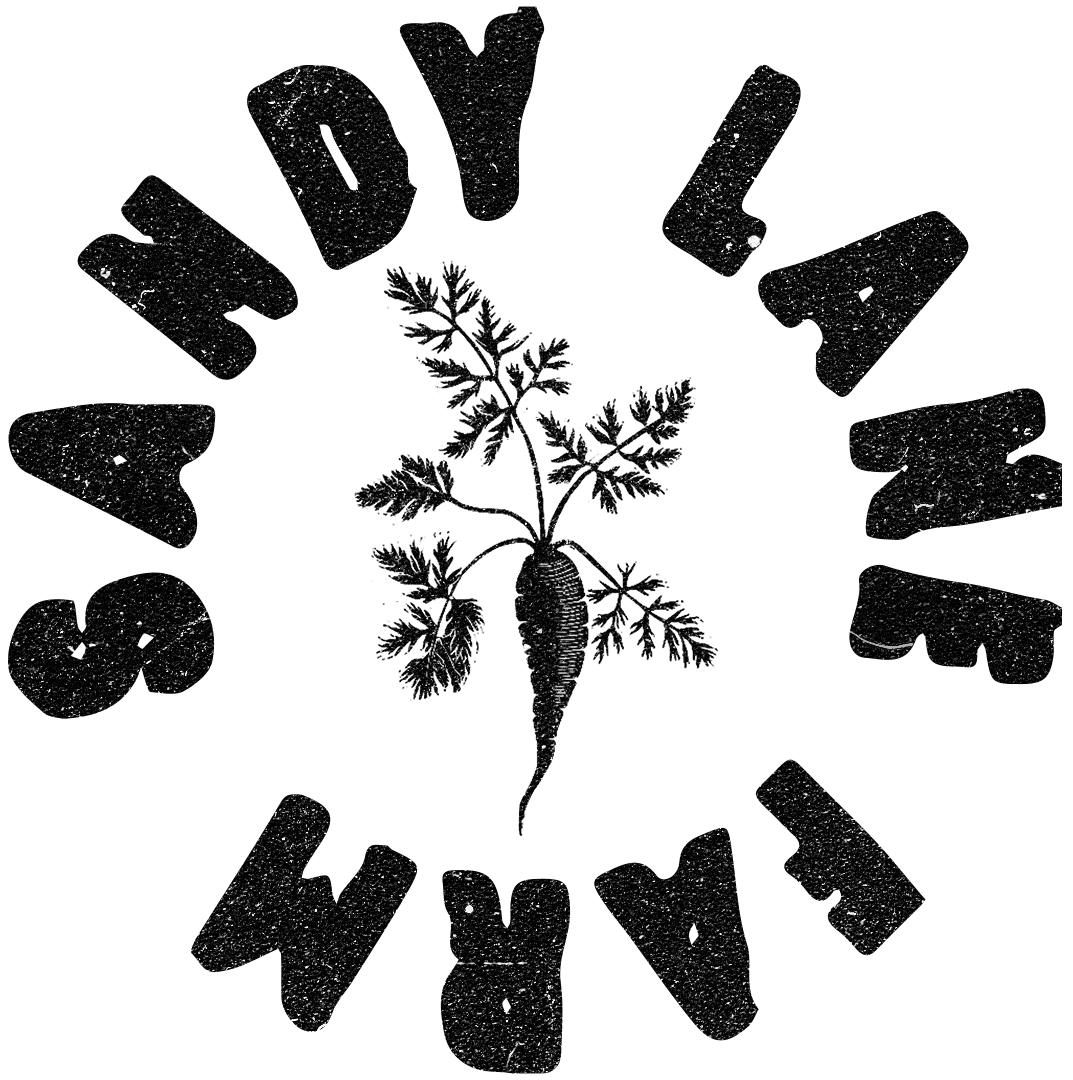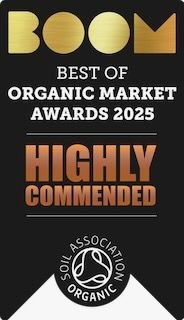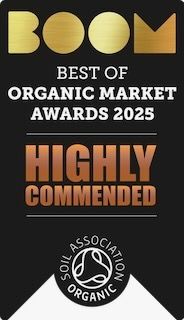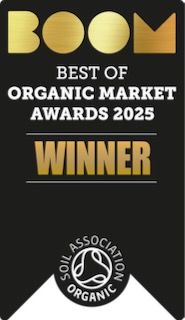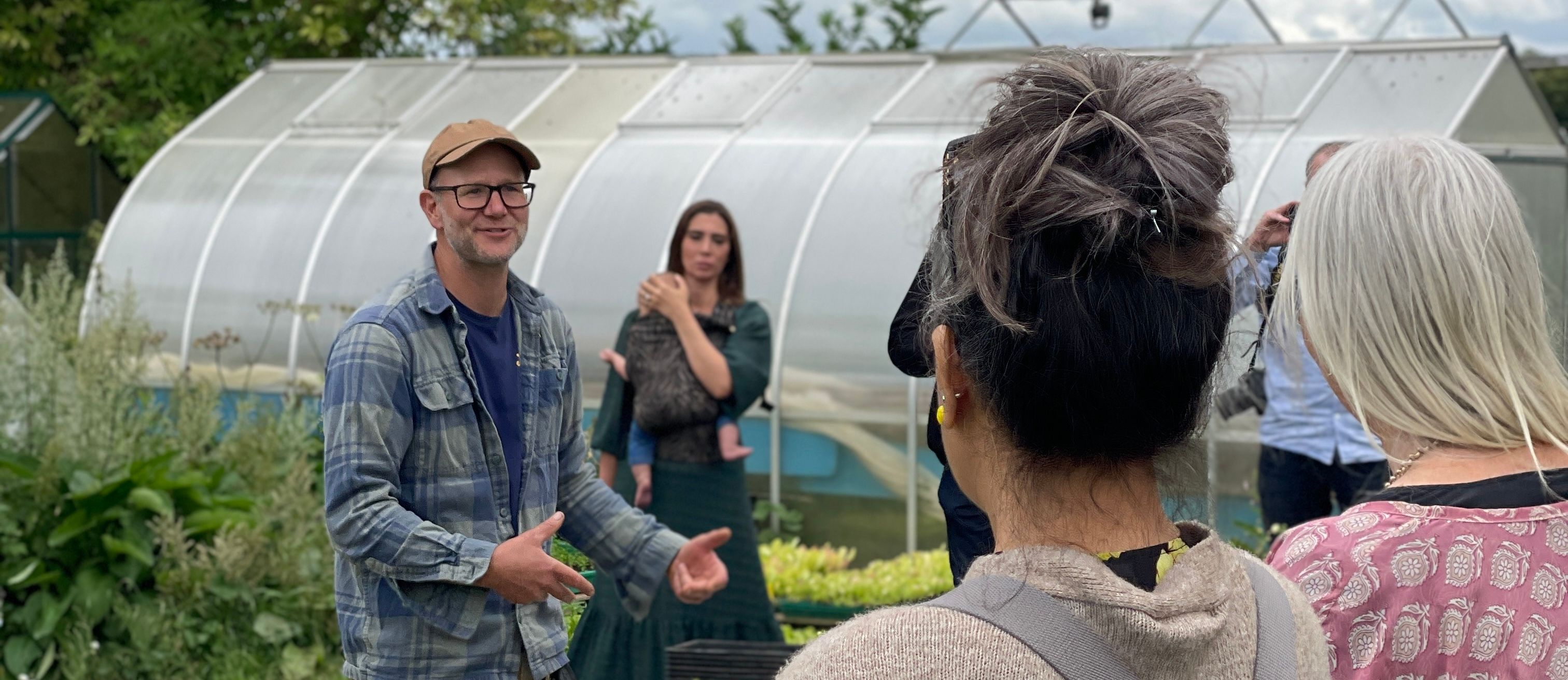
Press Page
Meet George Bennett: A Visionary in Sustainable Farming
George Bennett is not just a farmer; he is a passionate advocate for sustainable agricultural practices and a leading voice in the movement towards a more environmentally conscious food system. As a key member of the team behind GrowingGood, George combines traditional farming wisdom with innovative techniques to promote regenerative agriculture that nurtures both the land and the community.
His insights into the challenges and opportunities facing modern farming make him an engaging and thought-provoking interviewee. Whether discussing the importance of biodiversity, the impact of climate change, or the future of local food systems, George's expertise and enthusiasm shine through. He is committed to sharing knowledge and inspiring others, making him a valuable resource for anyone interested in sustainable practices, environmental stewardship, or the intricacies of modern agriculture.
George’s participation in various panels and discussions at events such as the Oxford Real Farming Conference highlights his dedication to fostering dialogue and collaboration within the agricultural community. With a genuine passion for sharing his experiences and insights, he is an excellent choice for interviews that seek to explore the intersection of farming, sustainability, and community engagement.
About Sandy Lane Farm
Sandy Lane is a traditional, mixed farm in the South Oxfordshire countryside, growing organic veg and rearing laying hens and small herds of pigs & sheep.
We are passionate about farming with nature, looking after the biodiversity around us so it can look after us.
The farm has been registered organic for over 30 years and we grow over 300 varieties of veg from large field scale root crops to delicate salad leaves & herbs, so that we can maximise the length of the growing season and breadth of produce for our veg box scheme and farm shop.
The Team
A dedicated team of veg experts run the farm, growing, harvesting, packing, selling & delivering delicious produce every week.
Our commitment to organic growing is both a passion and a mission and we utilise traditional farming methods, firmly backed by modern science. Biodiversity (above and below ground) is at the heart of organic farming and our approach is try to keep ‘nature in balance’ every step of the way.
We firmly believe that fresh, organic produce should be fairly priced and accessible to all. Alongside the farm shop, Sandy Lane has had an extremely successful partnership with Steve Sidhu of ten mile menu, which meant the veg reached a wider audience through his veg box delivery scheme. Fast forward to today, that partnership still continues but has evolved organically - and it’s now Sandy Lane Farm’s name on the box.
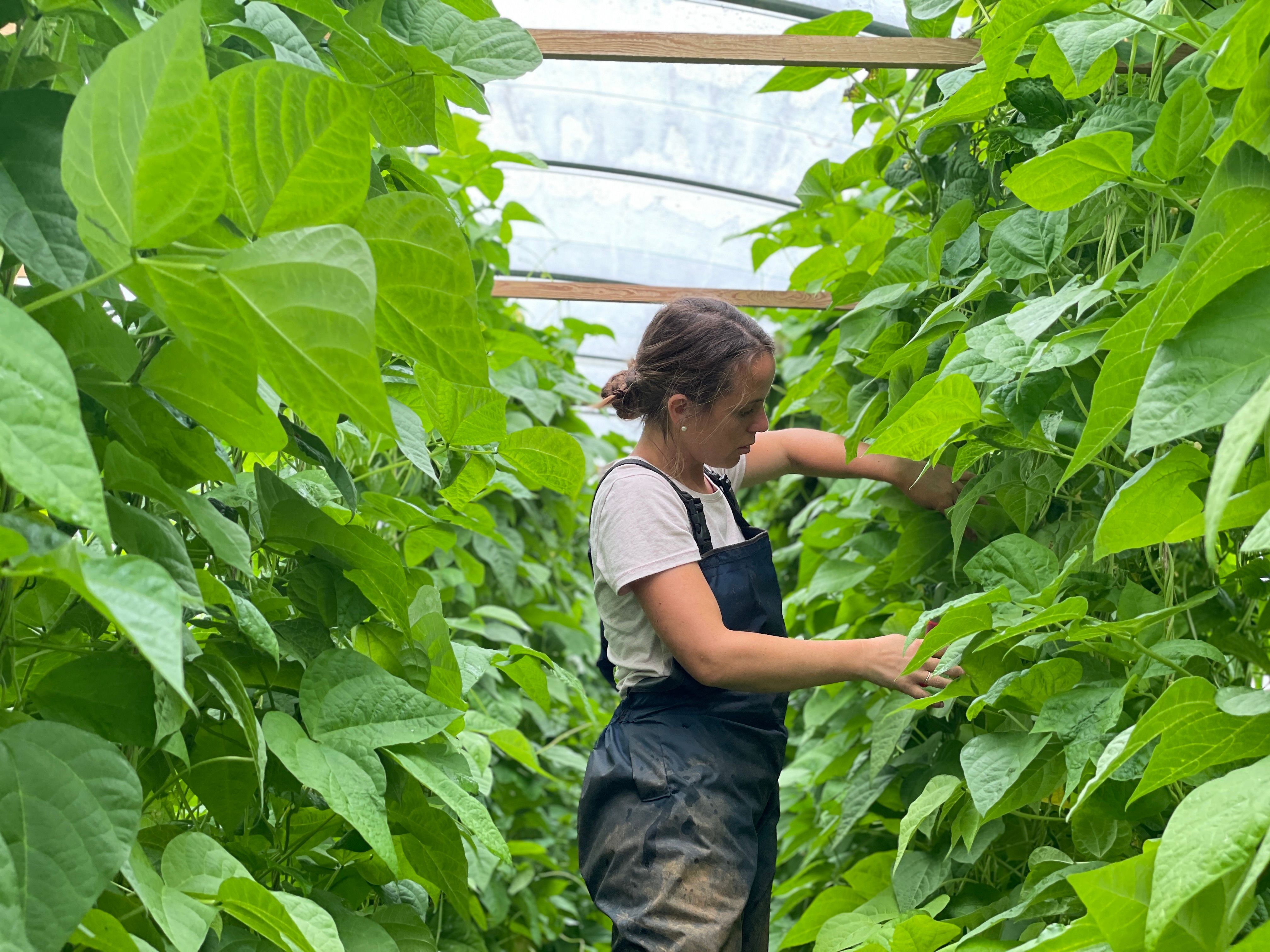
How We Do It
Each year the farm's fields are bordered by beautiful 'beetle banks' - areas of wildflowers and grasses, sown to encourage pollinators and 'nature's pest controllers' to the crops. Early in 2020 we also planted nearly 1000 trees on the farm, a mini-agroforestry project which should improve irrigation, provide a habitat for birds and other wildlife, as well as providing valuable aerial cover for his 400 organic egg laying hens.
Fertility is ‘grown’ on an organic farm, rather than added by artificial methods, soil health is crucial. We now have a well established, large 'no-dig' area in the market garden, which has both improved the soil's quality and reduced the weed burden. The poly tunnels provide veg earlier and later in the season and field scale vegetables allow us to grow volume for our veg boxes.
With much of the planting, weeding and harvesting carried out by hand, it’s time consuming and labour intensive to work but the results speak for themselves, veg that is grown naturally, full of flavour and fresh from the ground.
Local, seasonal and organic - in short, we offer great veg, grown in harmony with nature, right here in Oxfordshire soil.
We also have small scale non-intensive animals on the farm that fit within the vegetable rotations
Definition of Organic Farming
Organic farming is an agricultural method that prioritises the use of natural processes and materials. It avoids synthetic chemicals, genetically modified organisms (GMOs), and artificial fertilisers. Instead, organic farming employs practices such as crop rotations, composting, and biological pest control to enhance soil health and promote biodiversity. The primary aim is to produce food sustainably while supporting ecosystem health and minimising environmental impact.
The Soil Association
The Soil Association is the UK’s leading membership charity and organic certification body, founded in 1946. Its primary mission is to promote sustainable farming and food systems that benefit the environment, society, and health. The organisation works to advance organic farming practices, advocate for higher standards in food production, and raise public awareness about the benefits of organic products.
Key activities of the Soil Association include:
- Certification: The Soil Association certifies organic farms, food businesses, and products, ensuring they meet rigorous standards of organic farming and production.
- Advocacy: The organisation campaigns for policy changes that support organic farming and sustainable agriculture, working with government bodies, NGOs, and other stakeholders.
- Education and Research: The Soil Association provides resources, training, and research to farmers and producers, helping them adopt best practices and improve their sustainability.
- Public Engagement: Through events, publications, and campaigns, the Soil Association educates consumers about the importance of organic food and its positive impact on health and the environment.
Overall, the Soil Association plays a crucial role in fostering a sustainable food system in the UK, supporting both farmers and consumers in their commitment to organic principles.
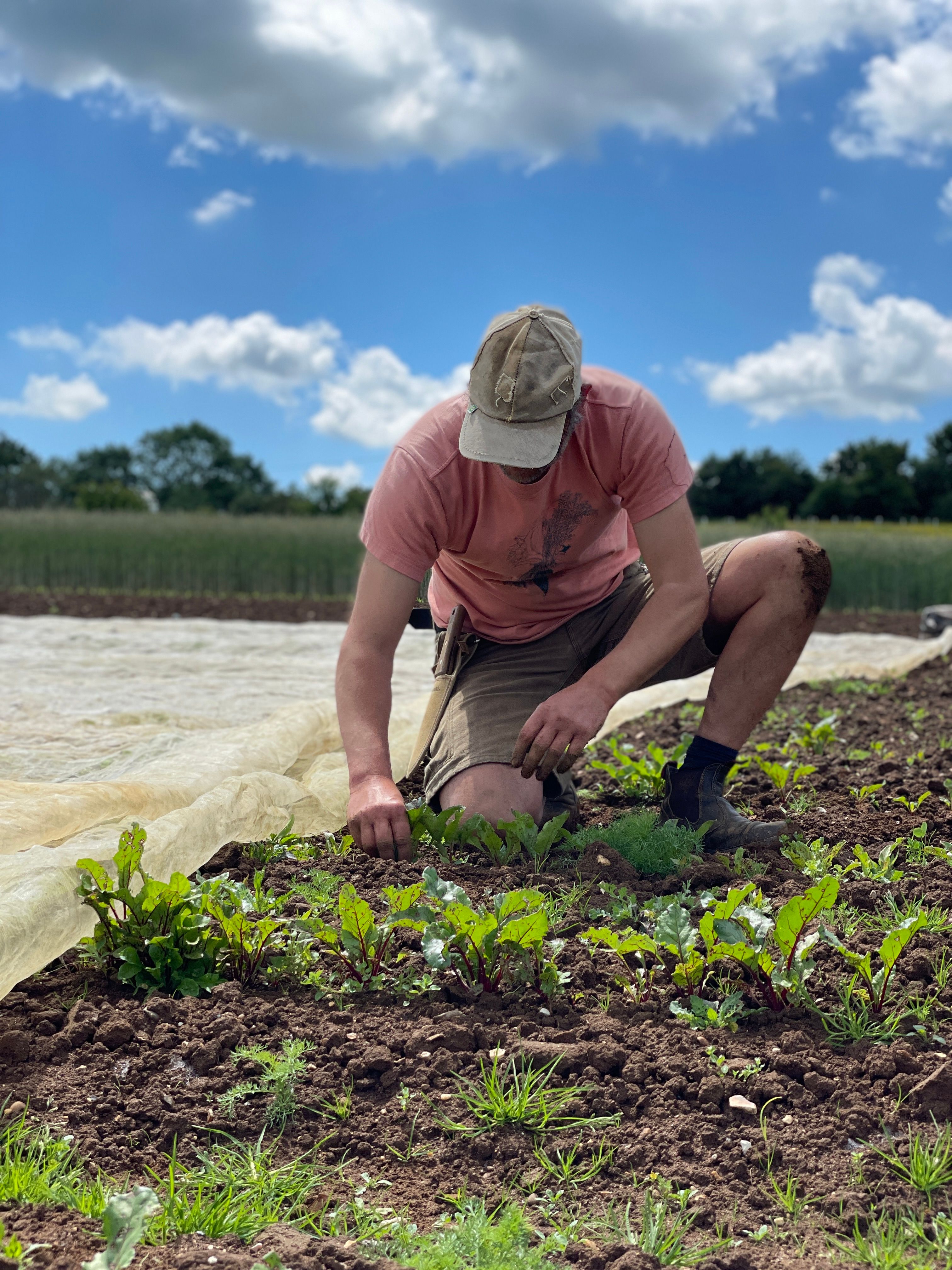
Interesting Facts and Figures about UK Organic Farming
- Growth of Organic Farming: The organic food market in the UK reached approximately £2.79 billion in 2021, with a continued upward trend as consumers increasingly seek out organic products.
- Land Use: In the UK, over 500,000 hectares of land were dedicated to organic farming as of 2021, representing about 3% of the total agricultural land. This figure has been steadily increasing, showcasing the growth of organic practices.
- Soil Association’s Role: The Soil Association, established in 1946, is the UK’s leading organic certification body. It plays a vital role in promoting organic farming, advocating for sustainable practices, and raising awareness among consumers about the benefits of organic products.
- Biodiversity Benefits: Organic farms in the UK support significantly higher levels of biodiversity compared to conventional farms. Studies indicate that organic farms can host up to 50% more wildlife, contributing to healthier ecosystems.
- Soil Health: Research from the Soil Association highlights that organic farming practices lead to improved soil health, with organic soils exhibiting higher organic matter levels, better water retention, and reduced erosion.
- Consumer Preferences: A survey conducted by the Soil Association revealed that 82% of UK consumers believe organic food is better for the environment, indicating a strong public interest in sustainability and ethical food sourcing.
- Local Economic Impact: Organic farming supports local economies by creating jobs and encouraging local food systems. Many organic farms participate in farmers’ markets and community-supported agriculture (CSA) initiatives, fostering stronger community ties.
- Climate Benefits: Organic farming can help combat climate change by sequestering carbon in the soil. The Soil Association notes that adopting organic practices can lead to significant carbon storage, contributing to climate resilience.
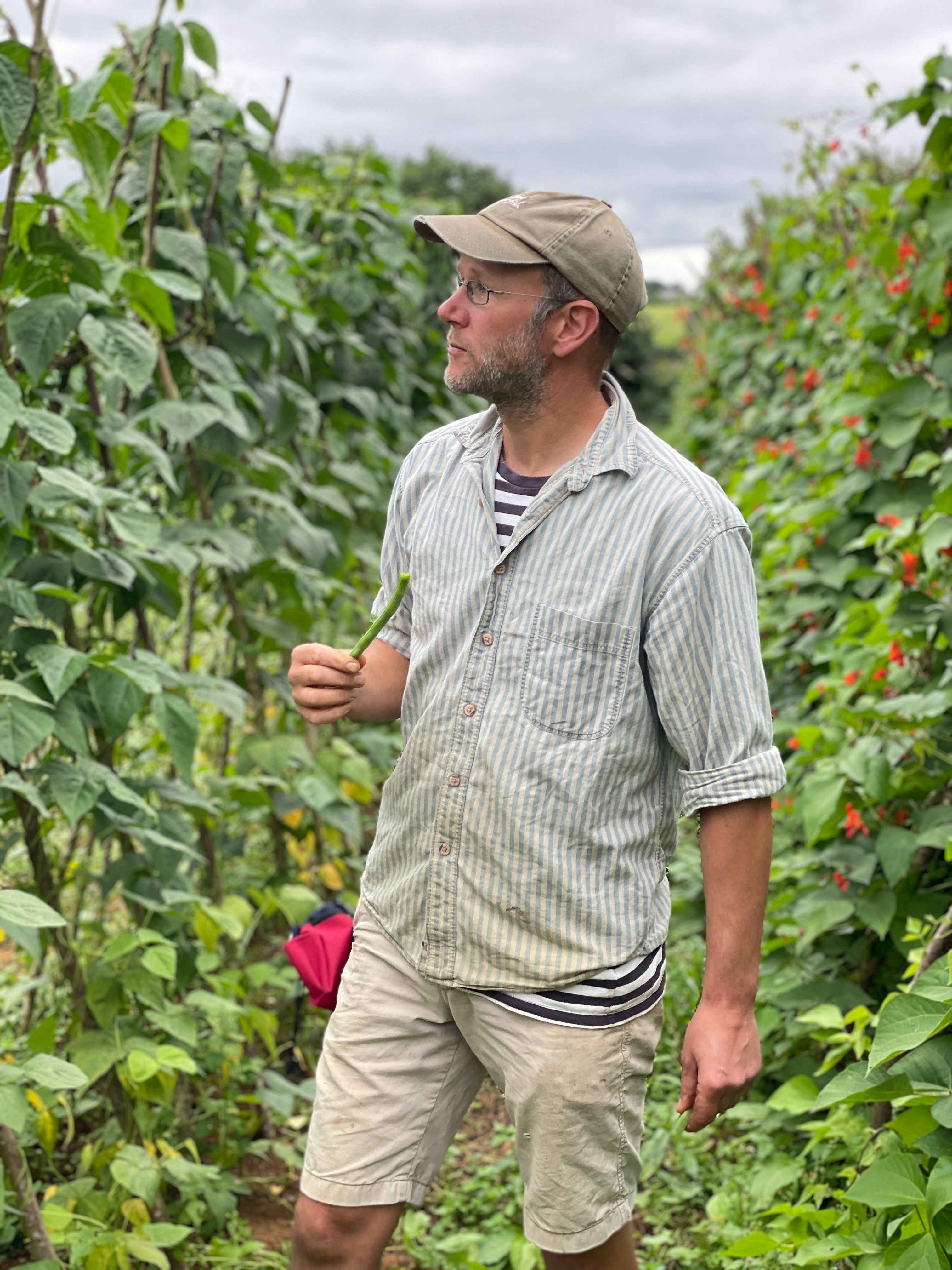
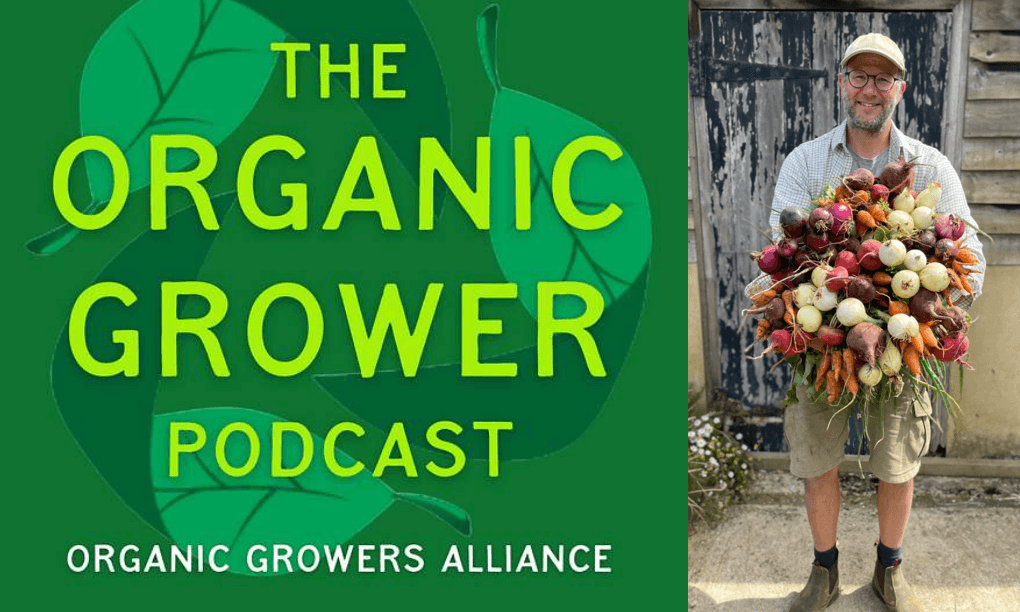
Listen to George Bennett on The Organic Grower Podcast!
In this episode, George Bennett of Sandy Lane Farm shares how he left a career in IT to return to his family farm and build a thriving, efficient growing operation. He and James discuss the challenges of scaling up a 400-strong veg box scheme and farm shop, the importance of strong systems and processes, and how technology and data analysis can drive success in small-scale farming.
George also talks about Growing Good, the sales platform he co-founded, and how Sandy Lane Farm’s standout social media presence is setting an example in the sector. Plus, he dives into the power of delegation and great people in making the whole machine work—even when he’s not around.
This episode is packed with insights for growers and farm businesses. Tune in now!
Brought to you by the Organic Growers Alliance, the UK's only grower-led organisation supporting organic growers. Learn more at www.organicgrowersalliance.co.uk.
For media inquiries, we have an extensive collection of photos available. Please contact us if you require specific images. You can also stay updated on our latest news and events by following us on social media at @sandylanefarm.
Media Contact: Cate Bennett
Email: [email protected]
Phone: 07715 493 368
